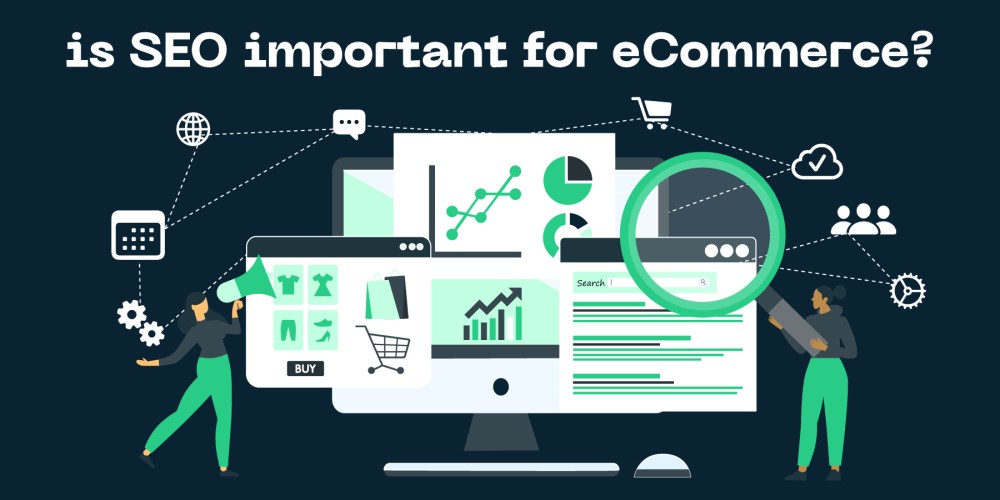What's in a Name? The Hidden Power of Effective Product Titles

The Importance of Product Titles
Understanding Product Titles
Product titles are often overlooked, but they hold an immense potential to influence the success of your ecommerce store. A well-crafted product title serves as the first introduction to what you are selling, making it a key determinant of whether a customer will click to learn more or just scroll past. A strong, descriptive and engaging product title can both attract potential customers and enhance your site’s SEO performance.
Understanding your product titles requires understanding your audience. Your product titles should speak directly to your target demographic, using language they understand and relate to. This could mean employing industry jargon for niche markets, or sticking to simple, descriptive language for a broader audience. Remember, the goal is not just to describe what the product does, but to communicate its value to the customer.
Moreover, product titles should be optimized for search engines. By incorporating relevant keywords, you increase the chances of your product appearing in search results - a crucial aspect of ecommerce success. However, be careful not to overdo it. Keyword stuffing can lead to penalties from search engines and alienate your human audience. Strike a balance between SEO and readability to craft the perfect product title.
Why Product Titles Matter
The world of ecommerce is becoming increasingly competitive. As an eCommerce store owner or marketer, you are likely always looking for ways to stand out and increase your conversion rates. One of the most crucial, yet often overlooked, aspects of ecommerce marketing is the power of a well-crafted product title. A product title is more than just a name - it is a vital part of your product’s identity and can heavily influence a potential customer’s decision to purchase.
The Importance of Product Titles
Product titles are not simply placeholders. They serve a crucial role in conveying the value and relevance of your products to potential customers. When a customer scans your product list, the title is often the first thing they see. If a product title is vague, misleading, or uninteresting, a customer is likely to overlook your product, regardless of its actual value. Conversely, an engaging, informative, and relevant product title can immediately capture a customer’s attention and spark their curiosity. This can significantly increase the likelihood of them clicking on your product and potentially making a purchase.
Furthermore, product titles also play a pivotal role in your product’s visibility in search engine results. By including key search terms and phrases within your product titles, you can vastly improve your products’ search engine optimization (SEO). This can not only increase the visibility of your products but also enhance the overall accessibility of your store. Hence, the importance of product titles extends far beyond aesthetic appeal - they are instrumental in driving traffic, attracting customers, and ultimately, boosting sales.
The Anatomy of an Effective Product Title
Key Components
When it comes to creating an effective product title, there are several key components that should be taken into consideration. The first and perhaps most crucial element is the product’s main feature or benefit. This can be anything from the product’s unique selling point, its primary purpose, or even its brand’s reputation. This not only gives potential customers an immediate understanding of the product, but it also sets the stage for what they can expect.
The next component to consider is the use of keywords. Keywords play an essential role in optimizing your product for search engines, making it easier for prospective customers to discover your product. However, it’s not just about stuffing as many keywords as possible into the title. The keywords need to be relevant and natural, seamlessly blending into the product title while still serving their primary function.
Lastly, don’t underestimate the power of emotional appeal in your product titles. Words that evoke emotions can significantly increase the chances of a customer clicking on your product. Combining emotional appeal with the product’s main feature and relevant keywords can create a powerful product title that not only attracts attention but also drives conversions.
Incorporating SEO
When crafting an effective product title, incorporating Search Engine Optimization (SEO) is an essential element you cannot afford to ignore. SEO helps your product title to gain visibility on search engine results, thus increasing the chances of potential customers finding your eCommerce store among the myriad of options available online. The right product title, infused with SEO, can mean the difference between obscurity and high visibility on the web.
So, how exactly does SEO tie into your product title? SEO is all about leveraging keywords - these are terms that your potential customers are likely to use when searching for products that you offer. By incorporating these keywords into your product title, you increase the chances of your product showing up in online searches related to those keywords. However, stuffing your product title with keywords can make it seem inauthentic and may even deter potential customers. The trick is to integrate relevant keywords in a seamless, natural way that doesn't compromise the readability and appeal of the title.
Remember, an effective product title serves two main functions - attracting the attention of potential customers, and helping search engines understand what your product is about. Therefore, incorporating SEO in your product title is not just about ranking high in search engine results, but also about reaching out to your target audience in a way that compels them to click through and check out your product. The power of an effective product title lies in this delicate balance between SEO and consumer appeal.
The Role of AI in Optimizing Product Titles
How AI Aids in Title Optimization
In the complex and competitive world of ecommerce, product titles hold immense power. A well-optimized product title can mean the difference between an item sitting idly in your online store or being swiftly added to a customer’s shopping cart. Here’s where Artificial Intelligence (AI) can be instrumental. AI algorithms can analyze vast amounts of data, identify patterns, and generate insights that humans might overlook. They can recommend title adjustments based on search volume, keyword relevance, and competitor analysis. This is the crux of the role AI plays in optimizing product titles.
Optimizing product titles can be a time-consuming process, especially when dealing with a large inventory. It requires a deep understanding of your target audience and the keywords they use when searching for products. But what if you could automate this process? AI tools can aid in this by suggesting more effective keywords and phrases, analyzing your industry’s competition, and adjusting your product titles accordingly. This allows you to focus on other important aspects of your business, while AI takes care of title optimization.
Remember, the aim of title optimization is not just to appeal to search engines, but to attract and engage potential customers. AI helps to strike this delicate balance, ensuring your product titles are both SEO-friendly and customer-centric. This underlines the importance of integrating AI in your ecommerce strategies. Embrace the power of AI and watch as your conversion rate takes a leap towards success.
The Benefits of Using AI
The world of ecommerce is an increasingly competitive space, where the smallest of details can significantly impact a store’s conversion rate. One of these crucial details is the product title. In this context, Artificial Intelligence (AI) can play a vital role. It has the capacity to analyze vast quantities of data at an unprecedented speed, thereby enabling ecommerce store owners and marketers to create more effective, appealing, and accurate product titles.
AI can analyze consumer behavior, identifying patterns and preferences that can then be used to optimize product titles. It can identify the terms that consumers connect with the most and suggest changes to product titles that can increase click-through rates. Also, AI algorithms can analyze popular product titles, identify the most effective structures and elements, and use this information to generate optimized titles for new or existing products.
Beyond this, AI can save significant amounts of time. Manually analyzing product titles, consumer behavior, and market trends is a labor-intensive task. AI, on the other hand, can perform these tasks swiftly and accurately, freeing up valuable time for you to focus on other aspects of your business. And because AI can learn and improve over time, its recommendations become increasingly accurate, leading to a steady improvement in conversion rates. Overall, the implementation of AI can lead to more effective product titles, a higher conversion rate, and a significant competitive advantage in the ecommerce marketplace.
Case Study: The Impact of Improved Product Titles on Conversion Rate
Before and After Analysis
Before and After Analysis is a powerful tool for ecommerce business owners and marketers. It involves taking data from before a change was made and comparing it to data collected after the change was implemented, allowing you to accurately measure the impact of a specific modification. In the context of product titles, a Before and After Analysis can help you determine if a change in your product title formula or strategy has had a positive effect on your conversion rate.
The Case Study: The Impact of Improved Product Titles on Conversion Rate serves as a prime example of the effectiveness of Before and After Analysis. The study showed a significant increase in conversion rates after the product titles were improved, demonstrating the hidden power of effective product titles. By simply refining the product title, the online store was able to attract and engage more potential customers, ultimately leading to an increase in sales.
It's essential to always base your ecommerce decisions on data rather than assumptions. Before and After Analysis allows you to do exactly that. It provides concrete evidence of what is working and what is not. As such, it can be an invaluable tool for store owners and marketers working on increasing conversion rates and ultimately, profits.
Results and Key Takeaways
The case study represented a significant increase in conversion rates after optimizing product titles. Elevating the quality of product titles and making them more descriptive resulted in a 33% increase in conversions. This bolsters the idea that the power of effective product titles should not be underestimated. A well-crafted, descriptive, and succinct product title can significantly impact a potential customer’s decision-making process, leading to increased sales and improved business performance.
Key Takeaways
First and foremost, product titles are a vital aspect of product listing optimization. They hold power to influence a potential customer’s buying decision hence, should be given due importance. Secondly, it’s essential to understand that creating effective product titles is not just about stuffing keywords. While SEO is crucial, the priority should be to provide clear, concise information that accurately represents the product. Lastly, regular testing and optimization are vital. Businesses must be willing to experiment with different product title variations, analyze the results, and constantly tweak to achieve the best performance.
Tips for Crafting High-Converting Product Titles
Know Your Audience
Understanding your audience is a critical aspect of crafting effective product titles that convert. It doesn't matter how creative or catchy your title is, if it doesn't resonate with your target customer, it won't drive sales. As an ecommerce store owner or marketer, you have to know who your audience is, what appeals to them, their preferences and their shopping habits. This knowledge forms the bedrock upon which you can then construct high-converting product titles that speak directly to your audience.
Demographics, psychographics, and customer behavior are key factors to consider when getting to know your audience. Demographics will tell you who your customers are in terms of age, gender, location, etc. Psychographics will provide insight into their lifestyles, values, attitudes, and interests. Customer behavior, on the other hand, gives you a peek into their shopping habits, preferences, and the factors that influence their purchasing decisions.
Armed with this information, you can craft product titles that not only catch the attention of your potential customers but also connect with them on a more personal level. Remember, an effective product title is one that not only describes the product but also speaks the language of your audience. It conveys the product's value proposition in a way that is meaningful and appealing to them. Therefore, knowing your audience is not just about gathering data, it's about understanding their needs and aspirations, and reflecting them in your product titles.
Use Descriptive and Persuasive Language
One of the most powerful strategies you can leverage to craft high-converting product titles is the use of descriptive and persuasive language. There is a profound difference between a title that merely labels a product and one that vividly describes it, engaging potential customers on an emotional level. When customers can envision a product’s benefits and how it fits into their lives, they are far more likely to make a purchase. Incorporating unique, sensory language into your product titles can transform them into compelling narratives that highlight the value your product provides.
Let’s take, for example, a simple ’black leather jacket’. A title like ’Men’s Black Leather Jacket’ is factual, but it lacks persuasive power. What if, instead, we titled it ’Men’s Bold Black Leather Biker Jacket’? The addition of ’bold’ and ’biker’ adds depth, painting a more vivid image in the customer’s mind and appealing to their desire for style and adventure. By employing persuasive language, you don’t just list a product—you sell an experience.
Remember, customers don’t buy products, they buy better versions of themselves. Therefore, it is essential to ensure your product titles convey the transformative power of your products. Strategically leveraging descriptive and persuasive language can transform your product titles from mundane labels into captivating promises of value, and consequently, boost your conversion rates.



